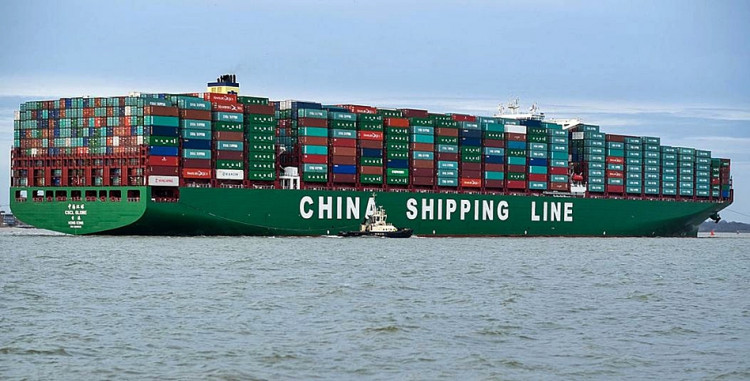In an act unprecedented in modern U.S. history, Donald Trump will tax all the goods imported into the U.S. by a single country -- in this case China -- in an ill-advised attempt to gain victory in an ongoing trade war.
Doing so will guarantee the prolongation of the China-U.S. trade war into the 2020s, say experts. The US imported $505 billion worth of goods from China in 2017, according to the U.S. Census Bureau.
China' trade surplus with the United States ballooned unexpectedly to $28.97 billion in June, the highest surplus on record, according to data supplied by China. This surprising statistic comes in the wake of a steadily worsening trade dispute between China and the U.S. that began in June and was exacerbated in July with the imposition of American tariffs.
Things will now move from bad to worse.
"I'm ready to go to 500," said Trump referring to the $500 billion worth of goods from China in 2017.
Trump claims he's "not doing this for politics. I'm doing this to do the right thing for our country. We have been ripped-off by China for a long time."
China blasted Trump's protectionism before filing its case with the World Trade Organization (WTO) last week. "The tariffs are typical unilateralism, protectionism and trade bullying," it pointed out. "They are a clear violation of the basic WTO principle of most-favored-nation treatment, as well as the basic spirit and principles of international law."
This new Trump threat was made only last week and follows the imposition of U.S. tariffs on more than $34 billion worth of Chinese products on July 6. The Trump administration announced plans to impose 10 percent tariffs in September on an extra $200 billion worth of Chinese imports consisting of more than 6,000 goods and commodities.
The new list of Chinese commodities facing retaliatory duties of 10 percent includes frozen meats; a long list of live and fresh fish and seafood; butter; onions; garlic and other vegetables; fruits and nuts.
It also includes consumer goods such as beauty products; bicycles; car tires; furniture; wood products; handbags and suitcases; dog and cat food; baseball gloves; carpets; doors; skis; golf bags and toilet paper. Then, there are metals and a wide range of chemicals. White House officials said it might take two months to finalize the new list.
The threat to place tariffs on all imported Chinese goods will effectively end the tit-for-tat trade battle between the two countries, as Chinese imports from the U.S. are much smaller at $129.9 billion.






